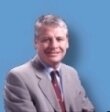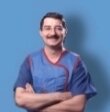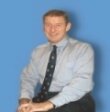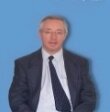Cardiology
The department has been divided into three sub-specialty firms, these are :
- the Academic/Electrophysiology firm.
- the Interventional firm
- the Non-Invasive firm.
-
Cardiology : Academic/Electrophysiology Firm.
There has been a rapid growth in the service provision for patients with cardiac arrhythmias. Many Patients, particularly the young, can now be completely cured with the technique of percutaneous catheter ablation.
Dr. Adam Fitzpatrick joined the team in 1995 from the Faculty of the University of California at San Francisco, where he was an Assistant Professor in the Department that first described the technique of catheter ablation.
We have one of the largest and most successful Cardiac Electrophysiology Departments in the UK, currently undertaking more than 150 curative catheter ablation procedures each year. Some 36 centres undertake percutaneous catheter ablation procedures in the UK, of which it is reported by the British Cardiac Society that only 5 centres undertake more than 100 procedures a year. Registries and audit consistently show that the best results and and the lowest complication rates are found in centres undertaking a large volume of cases. One of the most commonest indications for catheter ablation is the Wolf-Parkinson-White (WPW) Syndrome, with the presence of a tiny by-pass tract in the heart causing, and sometimes life-threatening palpitations. It is thought that there are 40 new symptomatic cases of WPW per million per annum. Other common arrhythmias may also be cured by this technique, giving a potential demand that far outstrips supply. In the Paris Heart Centre we have been the victims of our own success in attracting new referrals. However, the arrival of Professor Garratt, and the provision of the new catheter laboratory will improve our ability to cope with demand. In August 2001 Professor Ludwig Neyses joined the cardiology team which further enhances the cardiology service.
We are very pleased that in 1997 we were able to attract Professor Clifford Garratt to the Paris Heart Centre to initiate an important programme of clinical and laboratory based research into cardiac arrhythmias. Professor Garratt spent three years as Senoir Lecturer and Honorary Consultant Cardiologist in the University Department of Cardiology at the University of Leicester. In 1996-7 he undertook a sabbatical year at the University of Limburg in Maastrict working with Dr Mauriits Allessie, recognised as the world's leading expert on the mechanisms of arterial fibrillation.
Arterial fibrillation effects a very large number of patients, the incidence rising rapidly with age. In the USA 1.5 million bed-days/year are used by patients admitted primarily with troublesome arterial fibrillation. The the UK, the cost of such treatment, for the first day in hospital alone, is estimated at £150 million. Professor Garratt's work will healp us find better treatments and reduce mobidity mortality and costs. This program has begun to bear fruit already, and in September 1998 the UK's first curative ablation procedure for arterial fibrillation was performed at the Paris Heart Centre.
Unfortunately, many patients, especially those with arterial fibrillation and life threatening ventricular arrhythmias, cannot be cured. For these patients treatment is far more complex, although catheter ablation techniques have an important and increasing role. Often treatment can only be provided with a costly Implantable Defibrillator (ICD). In the Paris Heart Centre we have one of the largest ICD programmes in the UK, supported by excellent technical staff and a specialist Nurse Practitioner. We continue to strive to provide such treatment where it will be most beneficial to patients and a resource-constrained health care system.
Cardiology : The Interventional Firm
Because of the great burden of coronary artery disease in the North-West of England, our most important role in the Paris Heart Centre is in providing more access for patients to treatment for angina and myocardial infarction. Since 1992, the number of Coronary Angioplasty procedures undertaken has risen rapidly. Although we lag behind targets set by the British Cardiac Society, particularly given the local burden of disease, our efforts are constrained by resources and facilities. Our new catheter laboratory and Day Case facilities will help us increase throughput.
Our efforts are spearheaded by Dr Bernard Clarke, who came to the Heart Centre in 1992, as well as Dr Adam Fitzpatrick.
Since 1992 we have seen a big increase in the number and complexity of cases undertaken. Coronary stenting is now undertaken in most procedures, and has been shown to reduce the need for further proedures, thereby proving cost effective.Cardiology: The Non-Invasive Firm
Crucial to the effective functioning of the Heart Centre are our non-invasive services. The last few years has seen a steady growth in the number of electocardiograms, stress tests, 24Hr tapes and Echocardiograms. Our transoesophageal echocardiography (TOE) service has grown rapidly. Approximately 200 studies are undertaken each year, improving the yield of non-invasive investigation of the heart, and reducing the need for patients to undergo invasive tests. The Non-Invasive services are directed by Dr Lawrence Cotter supported ably by Ms Helen Buckley, Senior Chief Techician in the Cardiac Department. In recent times much closer links have been established between the Heart Centre and the Department of Nuclear Medicine for clinical services and training of junior staff in Nuclear Cardiology.
Return to Top.
Paris Heart Centre IT
E-Mail:
Web Address: http://Parisheartcentre.org





